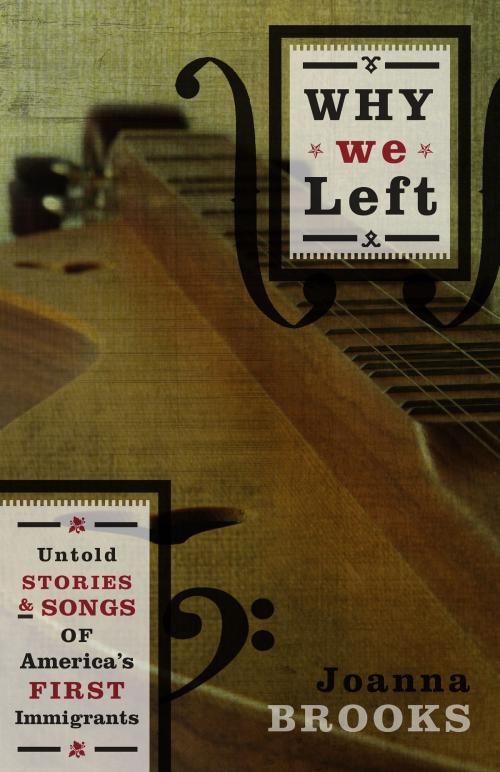Why We Left
Untold Stories and Songs of America's First Immigrants
Nonfiction, Entertainment, Music, Theory & Criticism, History & Criticism, Reference, History, Americas, United States| Author: | Joanna Brooks | ISBN: | 9780816684090 |
| Publisher: | University of Minnesota Press | Publication: | May 1, 2013 |
| Imprint: | Univ Of Minnesota Press | Language: | English |
| Author: | Joanna Brooks |
| ISBN: | 9780816684090 |
| Publisher: | University of Minnesota Press |
| Publication: | May 1, 2013 |
| Imprint: | Univ Of Minnesota Press |
| Language: | English |
Joanna Brooks’s ancestors were among the earliest waves of emigrants to leave England for North America. They lived hardscrabble lives for generations, eking out subsistence in one place after another as they moved forever westward in search of a new life. Why, Brooks wondered, did her people and countless other poor English subjects abandon their homeland to settle for such unremitting hardship? The question leads her on a journey into a largely obscured dimension of American history.
With her family’s background as a point of departure, Brooks brings to light the harsh realities behind seventeenth- and eighteenth-century working-class English emigration—and dismantles the long-cherished idea that these immigrants were drawn to America as a land of opportunity. American folk ballads provide a wealth of clues to the catastrophic contexts that propelled early English emigration to the Americas. Brooks follows these songs back across the Atlantic to find histories of economic displacement, environmental destruction, and social betrayal at the heart of the early Anglo-American migrant experience. The folk ballad “Edward,” for instance, reveals the role of deforestation in the dislocation and emigration of early Anglo-American peasant immigrants. “Two Sisters” discloses the profound social destabilization unleashed by the advent of luxury goods in England. “The Golden Vanity” shows how common men and women viewed their own disposable position in England’s imperial project. And “The House Carpenter’s Wife” offers insights into the impact of economic instability and the colonial enterprise on women.
From these ballads, tragic and heartrending, Brooks uncovers an archaeology of the worldviews of America’s earliest immigrants, presenting a new and haunting historical perspective on the ancestors we thought we knew.
Joanna Brooks’s ancestors were among the earliest waves of emigrants to leave England for North America. They lived hardscrabble lives for generations, eking out subsistence in one place after another as they moved forever westward in search of a new life. Why, Brooks wondered, did her people and countless other poor English subjects abandon their homeland to settle for such unremitting hardship? The question leads her on a journey into a largely obscured dimension of American history.
With her family’s background as a point of departure, Brooks brings to light the harsh realities behind seventeenth- and eighteenth-century working-class English emigration—and dismantles the long-cherished idea that these immigrants were drawn to America as a land of opportunity. American folk ballads provide a wealth of clues to the catastrophic contexts that propelled early English emigration to the Americas. Brooks follows these songs back across the Atlantic to find histories of economic displacement, environmental destruction, and social betrayal at the heart of the early Anglo-American migrant experience. The folk ballad “Edward,” for instance, reveals the role of deforestation in the dislocation and emigration of early Anglo-American peasant immigrants. “Two Sisters” discloses the profound social destabilization unleashed by the advent of luxury goods in England. “The Golden Vanity” shows how common men and women viewed their own disposable position in England’s imperial project. And “The House Carpenter’s Wife” offers insights into the impact of economic instability and the colonial enterprise on women.
From these ballads, tragic and heartrending, Brooks uncovers an archaeology of the worldviews of America’s earliest immigrants, presenting a new and haunting historical perspective on the ancestors we thought we knew.















